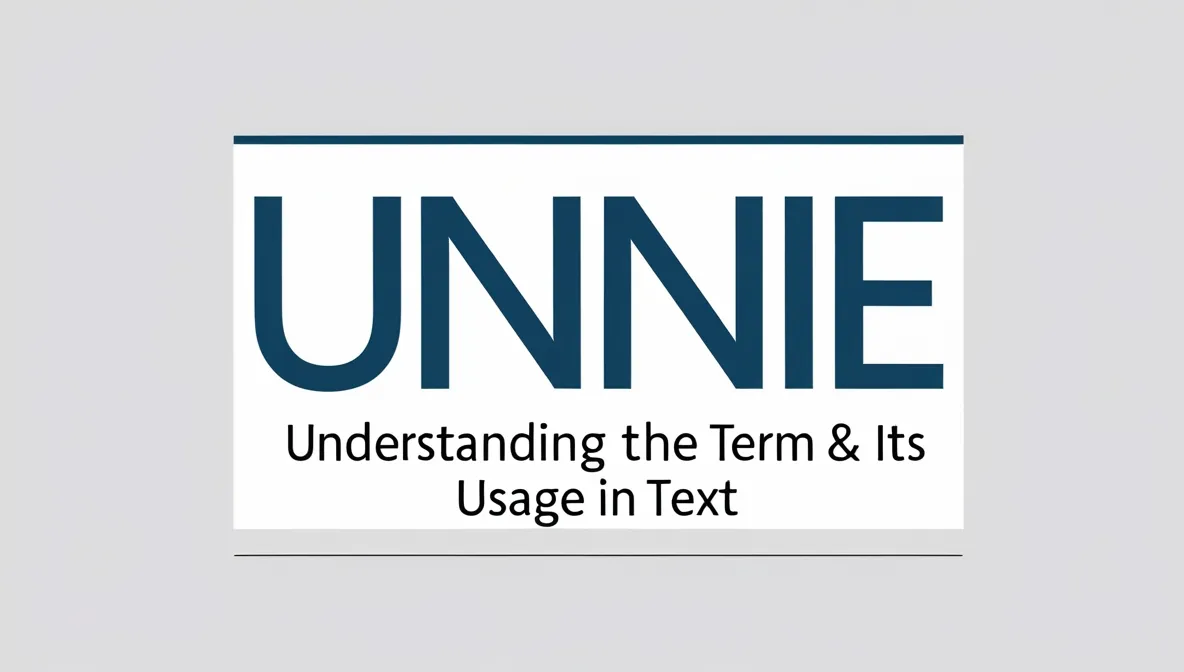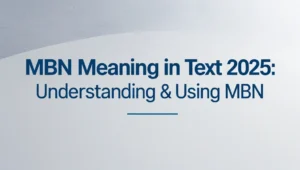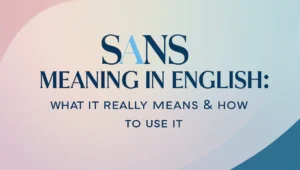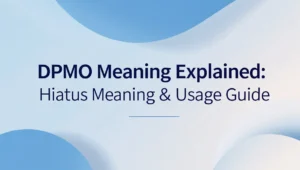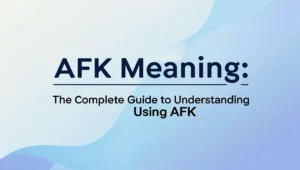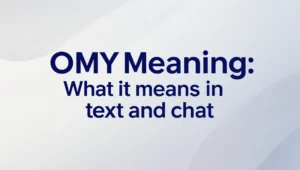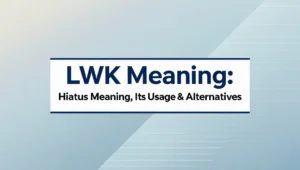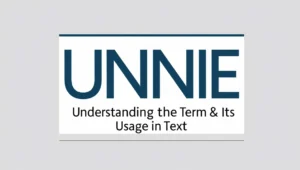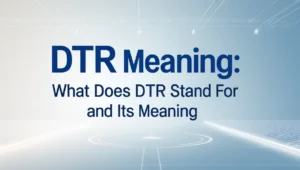On a tender evening filled with soft laughter and the warmth of shared memories, imagine celebrating a friendship anniversary with someone who feels like both sister and confidante. You see how laughter lines deepen, how care grows richer, and how hearts shift from ordinary closeness to something more poetic. In that embrace of years, one might lean close and whisper, “You’re my unnie.” In text or speech, unnie meaning carries emotional depth—an affectionate bond blending respect, intimacy, and sister‑like love. Let’s explore how this simple word weaves through language, culture, and digital connection. Unnie Meaning: Understanding the Term & Its Usage in Text
Exploring the Term Unnie in Korean Culture
- Unnie literally means older sister in Korean, spoken by a younger female to an older female 😊
- In Korean culture unnie expresses both respect and closeness toward an older woman 💖
- Using unnie signals you see someone as gentle guide and caring companion 🌿
- The concept of unnie reflects Korea’s age‑aware honorific system 📜
- Unnie allows friendships to carry familial warmth beyond blood ties 🏡
- In casual settings unnie softens formality into approachable kindness 🎀
- The term unnie holds emotional weight in everyday Korean life 🎁
- Unnie usage shows you acknowledge age difference with affection 🧡
- It bridges hierarchy with heartfelt familiarity 💫
- Unnie in culture binds respect and care into one word 🌸
- The word unnie roots in Korean values of harmony and social order 🧭
- Calling someone unnie honors experience without distancing closeness 🪞
- The cultural meaning of unnie often appears in dramas and media 🎬
- Understanding unnie helps learners grasp Korean relational norms 🌍
- The role of unnie in Korean speech enriches emotional communication 💐
Unnie in Everyday Speech and Dialogue
- You might say unnie when calling an older female friend to join you 📞
- In conversation unnie shows warmth along with respect 🌻
- You could ask unnie for advice on fashion or life choices 👗
- Say unnie when greeting someone older in a friendly way 🙋
- Use unnie when you thank someone older who helped you 🙏
- Address someone as unnie when you want closeness with decorum 💌
- In chatting, you might call a senior you trust “unnie” 💬
- Unnie in speech can soften surprise or reproof gently 🌾
- Use unnie when you want mentorship from someone you admire 🧠
- In familial talk younger sister uses unnie for her older sibling 👭
- You may call a coworker unnie if she’s older and you feel close 👩💼
- In polite banter, injecting unnie adds affection to tone 😊
- During emotional talks using unnie shows deeper bond 💓
- In casual gatherings unnie helps you speak without stiff titles 🎉
- In speech, unnie makes roles of age and care intertwine ❤️
Unnie in Text Messages and Online Chat
- Someone texts you unnie to greet you with warmth 😊
- A friend might write hi unnie how are you today 🌷
- You may see unnie used in K‑pop fan comments 🎤
- In chats, unnie shows adoration toward an older female 🌸
- You might type thanks unnie for your encouragement 🙏
- Use unnie in casual texts to soften directness 💌
- In DMs fans call idols unnie as affectionate title 🎀
- A follower might say unnie your latest photo is stunning ✨
- In texting, unnie becomes shorthand for respect + closeness 🧡
- You may see unnie with emojis to express excitement 😍
- Someone might ask unnie when calling someone older stylish 💄
- In online comments you might call someone unnie to flatter 🌼
- Use unnie in texts to show playful endearment 🎈
- In chats with female mentors people call them unnie 🙇
- Unnie in messages conveys emotional tone beyond words 💫
Unnie Meaning: Understanding the Term & Its Usage in Text
Variants and Romanization of Unnie
- The romanization eonni reflects official Korean spelling rules 📖
- Many write unnie as “unnie” because it’s phonetically intuitive 🎧
- You might see “uni” or “oni” as informal shortenings 🌀
- Some fans mix unni variant in casual chat 👤
- eonni appears in academic or language learning texts 🏫
- Unni may be common in forums and fan comments 💬
- Oni might show up when users type quickly on mobile 📱
- Uni gives a cute, shortened vibe among close friends 🌟
- Romanization choices reflect user preference and ease 🛤️
- Variants like unni or uni are understood in K‑pop circles 🎶
- Eonni follows Revised Romanization in textbooks 📘
- Many default to unnie because it’s widespread in fandoms 💞
- Some choose the variant that fits chat style (e.g. unni) 🎨
- Romanization doesn’t change cultural meaning of unnie 🏵️
- All variants reference the same Korean term 언니 💝
Emotional Significance Behind Calling Someone Unnie
- Saying unnie carries trust, as one sister to another 🌸
- It signals you hold someone in high regard emotionally 💖
- Calling unnie can feel like inviting someone deeper into your life 🛤️
- It grants comfort—you feel you have a caring big sister 🥰
- It weaves affection into everyday speech 💌
- Unnie usage validates the older person’s wisdom 🌿
- It softens distance with warmth and respect 🤝
- The emotional undertone of unnie feels protective 🛡️
- Calling someone unnie often invites nurturing closeness 🌱
- It shows you look up to the person not fear them ✨
- It ties admiration and familiarity in one word ❤️
- Unnie can make emotional support feel more personal 💫
- It grants a sense of belonging, of sisterhood together 🌷
- The meaning behind unnie often warms the heart deeply 💓
- Use of unnie bridges respect and emotional intimacy 💍
Rules and Contexts for Using Unnie
- Only female speakers address older females as unnie 🚫
- Men addressing older females use “noona” instead 🧑🤝🧑
- Use unnie in informal or casual contexts, not formal or business 💼
- Don’t call someone unnie if they dislike it or feel awkward ⚠️
- Use unnie with peers, friends, or those you respect and feel close to 🌱
- Avoid unnie in hierarchical or professional settings with distance 🏢
- It’s best used when you know age difference or relationship clearly 📏
- Use unnie with consent: if someone requests formal terms, adjust 🤝
- The term is inappropriate when addressing strangers in public settings 🛑
- Unnie often fits between friends, family, K‑pop fans, and mentors 🎤
- In writing or texting, use unnie to maintain tone of closeness 💬
- Unnie usage reflects relational context, not formal title 📂
- Be cautious using unnie with someone much older if you’re unsure 🎯
- Use of honorifics in Korean like unnie matters in speech politeness 📜
- Context dictates whether unnie feels natural or forced 🎭
Unnie Meaning: Understanding the Term & Its Usage in Text
Comparing Unnie With Related Korean Words
- Oppa: a female uses it to address an older male, unlike unnie 🎯
- Noona: a male uses it to call older female, while women use unnie 🎓
- Hyung: a male addresses older males with hyung, different from unnie 👬
- Sunbae: senior in work or school context, more formal than unnie 🏫
- Dongsaeng: refers to younger siblings or younger peers, opposite direction 🌱
- Nim: honorific suffix meaning “sir/ma’am,” more formal than unnie 🏷️
- Unni (variant): casual form often used among fans or in texts 🎭
- Eonni (spelling): formal romanization of unnie, same meaning 📘
- Sister (English): similar affectionate concept but lacks Korean honorific nuance 👭
- Big sis: English parallel, but lacks cultural weight unnie holds 🌸
- Junjeong titles: Korean speech levels influence how you say unnie in sentences 🎚️
- Formal titles vs unnie: unnie remains casual, informal, caring 💞
- Mixed language usage: fans often mix unnie with English to express closeness ⚙️
- Cultural term vs literal: unnie carries cultural meaning beyond translation 📜
- Honorific network: unnie is one node in Korean relational speech ecosystem 🌐
How Unnie Enters Fan Communities and K‑pop
- Fans call female idols unnie to show affection and closeness 💕
- Younger female fans might refer to older idols as unnie 👑
- In K‑pop groups members call older members unnie among themselves 🎤
- Online fandoms use unnie in comments and posts to idols 📸
- Unnie becomes an identity label for female fans feeling sisterly connection 🌟
- At fan meetings fans may address idols as unnie respectfully 🙌
- Unnie usage strengthens parasocial relationship bonds 📱
- Fan art may label an idol as “our unnie” to express love 🎨
- Fan forums debate who qualifies as “unnie line” in girl groups 👭
- In K‑drama viewing groups fans call older actresses unnie 🎬
- International fans adopt unnie to connect with Korean culture 🌍
- Some fans feel calling idols unnie is too familiar—balance matters ⚖️
- Use of unnie in fandom must respect boundaries and cultural sensitivity 📜
- Fans may switch between unnie, eonni, and variants based on style 🎲
- Unnie in fan culture reflects admiration tempered with affection ❤️
Misuses and Cultural Sensitivities Around Unnie
- Some non‑Koreans use unnie casually without grasping nuance 💭
- Calling strangers unnie can feel awkward or disrespectful 🚫
- Fans may overuse unnie to appear culturally connected, risking shallowness 🌊
- Misusing unnie across genders or in formal contexts shows ignorance 🧠
- Some feel cultural appropriation if unnie is misused without understanding 🌎
- Idol may feel strange if casual fan calls them unnie in real life 😬
- Overfamiliar use of unnie can create emotional distance if not sincere 💔
- Using unnie jokingly with no prior bond may confuse relationships 🔄
- Some believe unnie should be earned, not freely given 💎
- Mispronouncing or spelling wrong variant might offend cultural learners 💬
- Using unnie with much older people without consent may backfire 🕊️
- Mixing honorific forms improperly with unnie distorts meaning ⚠️
- Some see overuse of unnie among fans as idol worship rather than genuine bond 🎯
- Cultural misuse of unnie might reduce it to fashion catchphrase 🎭
- Sensitivity: respect how individuals accept or reject being called unnie 🙏
Unnie Meaning: Understanding the Term & Its Usage in Text
Recognizing Signals Someone Accepts You as Unnie
- They address you back with trusted name, not formality 😊
- They ask your opinion like a younger friend would 🧠
- They confide in you with personal stories 💖
- They respond warmly when you use unnie 🌸
- They call you unnie in return or adopt same tone 🌀
- They treat you with respect and still closeness 🤝
- They include you in conversations with trust 💬
- They show vulnerability toward you 🥀
- They relax title and treat you as friend not boss 🛋️
- They use affectionate emojis or tone toward you 💫
- They ask for your feedback or direction 🌟
- They ask “unnie, what do you think?” often 📝
- They reach out in small ways, trusting your care 🌷
- They share challenges knowing you’ll understand 💚
- They welcome your presence as something safe 💞
How to Respond If Someone Calls You Unnie
- Thank them and appreciate their trust warmly 🌸
- Respond with gentle kindness and openness 😊
- Ask what unnie means to them in that moment 💬
- Offer guidance or listening ear as a big sister would 💤
- Keep humility: you’re not perfect, but you care 🌱
- Respect their feelings and reciprocate affection 💖
- Clarify boundaries if needed but stay warm 🛡️
- Share your own thoughts softly and honestly 🧭
- Let them know you value their trust 💎
- Use your speech gently, not demanding or overbearing 🕊️
- Be consistent in support to validate the title 🌿
- Listen deeply when they share their heart ❤️
- Say things like I’m honored you call me unnie 🥰
- Avoid using unnie to control or pressure them ⚠️
- Encourage them to call you what they feel comfortable with 🌼
How to Use Unnie Naturally in Conversation
- Insert unnie before a name to soften request: unnie Ji‑eun, can we talk? 💌
- Say unnie when giving compliments: you’re amazing unnie 🌟
- Use unnie in storytelling to describe someone beloved 🌿
- In group chat you might say unnie, join us soon! 🎉
- In advice you can start, unnie suggests … 💭
- Use unnie in emotional support: unnie, I’m here for you 🤗
- In humor: unnie, you tease me too much 😄
- When asking: unnie, may I ask you something? 🗣️
- To calm someone: it’s okay unnie, I understand 🧡
- In reminders: don’t forget rest unnie 🌙
- To share feelings: unnie, you matter so much 💖
- In encouragement: unnie, you’re doing great 💪
- As gentle check‑in: unnie, how was your day? 🌻
- In reassuring tone: unnie, I trust you 🌷
- In closing: take care unnie until we meet again 🌿
Unnie Meaning: Understanding the Term & Its Usage in Text
Advantages of Understanding Unnie in Communication
- It helps build emotional closeness in Korean contexts 🤝
- You show cultural awareness and respect 🌐
- It enhances your Korean linguistic fluency 📚
- You deepen friendships through affectionate titles 💌
- You can connect better with K‑pop and K‑drama fans 🎶
- Using correct unnie avoids awkward mislabeling 🎯
- It enriches your identity in cross‑cultural speech 💫
- You integrate into Korean social norms more naturally 🛤️
- It allows more expressive, caring communication styles 🌸
- You prevent misunderstandings about titles and respect ⚖️
- It gains trust when you speak their relational language 🧡
- Understanding unnie broadens your view of social roles 🌺
- It shows humility in learning cultural honorifics 🧠
- You express both respect and warmth in one word 💐
- Mastery of unnie opens doors to deeper interpersonal bonds 🎁
Challenges in Learning and Using Unnie
- You may misapply unnie across gender contexts mistakenly 🧭
- Fear of offending someone by using unnie too soon 😬
- Spelling and romanization confusion (unnie, eonni, uni) 📜
- Cultural nuance might not translate cleanly in your language 🎭
- Hesitation in informal vs formal boundary contexts ⛓️
- Overusing unnie might dilute its emotional impact 💧
- Misusing unnie in business or formal settings causes awkwardness 🏢
- Idol‑fan dynamics blur personal limits around unnie identity 🌌
- You may get pushback if someone prefers formal address 🛑
- Pronunciation errors might reduce its sincerity 💬
- Understanding when not to use unnie takes time 📆
- Mixing honorific levels in sentences may confuse meaning ⚠️
- Some learners feel imposter syndrome using unnie in real talk 🌫️
- You need to adjust usage based on age, closeness, and context 🌿
- Keeping respect even in casual use challenges beginners 🏗️
Closing Thoughts
In the quiet space between friendship and familial love, unnie meaning blooms into something more than a label. It becomes a whisper of care, a gesture of respect, and a bridge of emotional safety. Whether in speech or in text, calling someone unnie weaves trust, affection, and age‑aware closeness all in one syllable. Use it gently, respectfully, and with intention. If your heart ever wants to extend sisterhood through language, let unnie be your tender offering—one that honors both bond and boundary.
Unnie Meaning: Understanding the Term & Its Usage in Text
FAQ
What exactly does unnie mean in Korean? Unnie (언니) is a term used by a younger female to address an older female, literally meaning older sister, but used in casual, respectful, affectionate relationships.
Who can use unnie and when? Only female speakers use unnie to older females in informal or friendly settings—not in formal work or to strangers.
Can men use unnie to refer to women? No, men generally use the term noona when addressing older females; unnie is reserved for female speakers.
Is unnie ever romantic? Usually unnie is platonic or sisterly. While affection can exist, it doesn’t inherently imply romantic meaning.
What should I do if someone dislikes being called unnie? Respect their preference. Ask their preferred form of address and use what makes both feel comfortable.
Are there different spellings of unnie? Yes. You’ll see unnie, eonni, unni, or uni depending on user choice or context, but they reference the same Korean term.
How does unnie compare to oppa, noona, hyung? Each term is tied to gender and relational direction. Oppa = female → older male; noona = male → older female; hyung = male → older male; unnie = female → older female.
Can non‑Koreans use unnie in fandoms? Yes, many fans use unnie to address idols or older fans, but doing so with respect and understanding cultural nuance enhances sincerity.How do I know when to stop using unnie? If someone signals discomfort, prefers formal address, or shifts relationship tone, adjust accordingly. Communication always matters.

